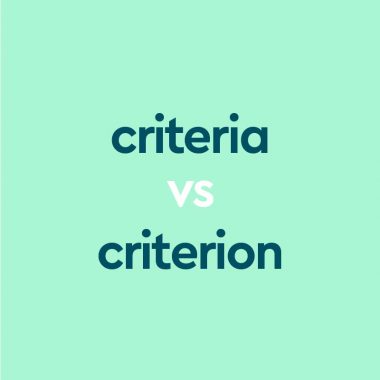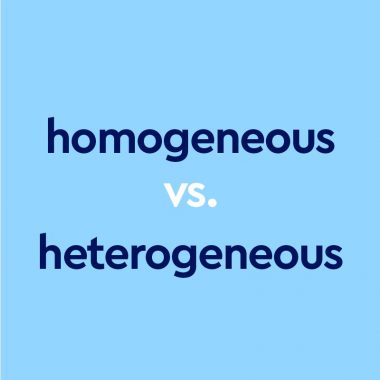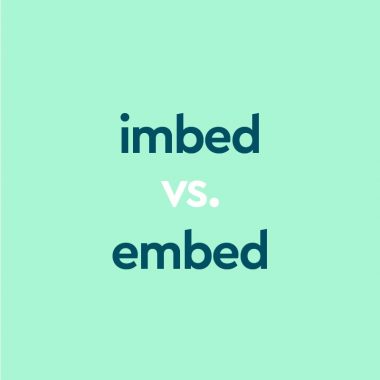Criteria vs. Criterion: How To Use Both Words
In this article, we will explain the difference between criterion and criteria, clarify the correct usage of the word criteria, and give examples of how we typically use both words in sentences. The word criterion is a noun that means “a standard of judgment or criticism.” A criterion is a rule or benchmark used to evaluate something. Criterion is a singular noun. The plural form …











